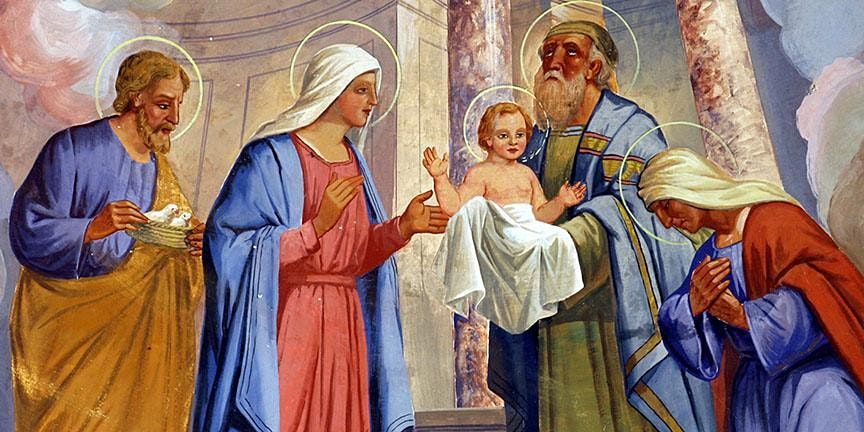Theme: All belongs to God
When we are mindful of the source of our essential commodities, then we begin to take care of how to utilize them. God has provided enough essential resources for all of us; the issue at hand is how we are willing to share them among ourselves. Though God is the provident provider of all we have, when it comes to using his goods, we tend to forget about him. Today we are being reminded to allow God the opportunity to bless the fruits of our hands before using them.
First reading: 2 Kings 4:42–44
Some people have been blessed by God to feed others. Elisha fed one hundred men with twenty barley loaves; God through Moses provided manna in the wilderness for the Israelites for forty years, Elijah was fed by the angel and Jesus multiplied five loaves of bread and two fish for five thousand people. All this is to remind us that God is attuned to and eager to satisfy every human hunger as long as we trust in him. In each of these events, however, those who ate their fill were also challenged to look beyond the gifts of nourishment in order to know and appreciate the giver.
In today’s first reading, we read that a man from Baal-Shalishah which is modern-day Kefr Tilt, fifteen miles north of Lydda on the coastal plains southwest of Samaria offered Barley bread to Elisha made from the first fruits of the grain harvest cf. Leviticus 2:12. With only twenty loaves Elisha fed one hundred people a wonder worked in the land of Canaan where Baal the god of fertility was credited with providing bread for the people. This affirms the fact that Yahweh alone satisfies the hunger of the people. By specifying that the bread was made of Barley grain, the reading affirmed the special predilection of God for the needy, since Barley was a cheap grain and its bread was the customary fare of the poor.
Because of the emphasis on the miraculous character of the bread feeding so many with so little; the satisfaction of those who ate and the fact that there were leftovers, preludes Jesus feeding of the multitudes daily everywhere with his gift as the Eucharistic. We who are the Church today should also see in these events a challenge to continue in this tradition by being a provider and multiplier of bread for the poor among us and beyond.
Second reading: Ephesians 4:1–6
Today St. Paul reminds us that by Baptism we are noble thus called to “live a life worthy of the calling you have received” Ephesians 4:1. Called to salvation by God and baptized into the death and resurrection of Jesus, we are thereby responsible for reflecting this relationship in every aspect of our day-to-day existences. St. Paul describes the essence of Christian vocation as unity among believers cf. Ephesians1:3-3:21. This ontological unity is clearly expressed by our actions that factual in five basic virtues of the Christian faith that form a portrait of any model disciple:
1- Humility/ tapeinophrosune means a humble and serviceperson somehow shy before others in order to serve selflessly as Christ did. Such a person is not a sycophant but a wise person who acknowledges the need for conversion.
2- Meekness/Praotesis that virtue that assists us to strikes a balance between two extremes. A meek person is kindled by the sufferings of others, surrenders he/herself to cause a good change.
3-Patience/Makrothumia means that quality of spirit that never gives in to weakness. St. John Chrysostomdefinesit a spirit that has the power to take revenge but never does so. In the bible, it is God who is continually characterized as being patient cf. 1 Peter 3:15. Since we the baptized have become one with God in Christ, it devolves upon us to strive for similar patience.
4- Love/Philo which is different from eros/bodily love, philia/warm affectionate friendship, stroge/familial affection and agape/complete selflessness that moves one to act beyond physical, friendly, familial and emotional love. Love is a virtue of the will, mind and heart which always seeks the ultimate benefit and welfare of the other, without reciprocity.
5- Peace/ Shallom is that virtue that assists believers to live together in the one-nesses of God. Where there is unity, there is peace that bears fruits of harmony and a flourishing Christian community. Today we are being invited to be one body with one hope and one faith, sharing one baptism in one Jesus, belonging to one God in one Spirit. This call from St. Paul intends to sharpen our appetites in being eager for unity which distinguishes us for others as those owned by Christ.
Gospel: John 6:1–15
While explaining today’s gospel, Karl Rahner noted that these people were drawn to Jesus, driven by a hunger for God. They followed himinto the wilderness because they were aware that their own lives were a wilderness. They wanted more than their ordinary lives where it was able to be offer to them. While they were hungering for God, a physical hunger seized them. Then the situation turned strange when Jesus, whom they were following, to hear the words of life gave them earthly bread and fish but after eating they lost focus and wanted to make him king cf. John 6:15. We have to avoid this similar temptation of prompting only for free lunch thus loosing sight of the significance. As a result, Jesus fled from them. Karl Rahner suggests that this is a parable of what constantly happens in the lives of individuals, particularly in our technological age.
They had followed Jesus because they hungered for the signs he was performing for the sick; this has to be the nourishment we physically desire in form of Barley bread, fish his word. All four gospels relate the episode of the feeding of the crowd cf. Mark 6:34-44; Matthew 14:13-21 and Luke 9:10-17. This sign as John terms it adds more value because it is a continuous wondrous deed desired by humanity daily. Of all the signs Jesus worked, John included but seven in his gospel. Each sign was to be recognized as a vehicle of revelation and means of personal encounter with God in Christ. We are challenged to see the sign beyond the sign.
In today’s gospel, through the sign of the bread for the many, Jesus is revealed as bread for the life of the world. Reminiscent of the gift of manna in the wilderness cf. Exodus 16:4-31 and of Elisha’s feeding of a hundred men with twenty Barley loaves, Jesus’ sign also points ahead to the gift of himself as bread at the last supper and ultimately to the gift ofhimself on the Cross.
Unique to this gospel again is the directive to gather up/synagein the fragments/klasma meaning leftover pieces of bread. Both of these terms appear in the Didache a Christian document dated ca 100 AD. The gathering up of the bread fragments symbolizes the gathering together of the Church. Instead, the broken fragments represent the gathered assembly of the faithful. Later in John 6: 6, when Jesus will declare himself to be bread and food for all it will become clear that all will be gathering/synagein under the shelter of God’s saving love when he is fragmented/klasma and broken on the Cross. In addition to the soteriological and theological overtones, there are also social implications inherent in this sign. Notice that Philip asked Jesus, “Where shall we buy bread for these people to eat?” John 6:5. Jesus sensed what the crowds were hungry for and the reason why they pursued him; no doubt, he wished Philip and all of us to be similarly sensitive to the needs of others. As this sign is proclaimed today, Jesus poses his question to each of us. ‘Where shall we buy bread to satisfy the hungry?’ All who eat and are filled by the bread of life and who truly perceive the sign in faith. . . all who are gathered together by that sharing. . . all of us here are responsible for one another as well as for those whose hunger is yet to be satisfied. If another person is hungry, it is I who must buy or make, beg or borrow bread. Then when he/she has been fed, it devolves upon us to satisfy his/her deeper hunger for the bread of life who is Jesus. Sharers in this bread will have eternal life.
Application
Let ourHope lead to future adventure by keeping us focused on values. Let our Faith tells us what to believe and charity our how to love. Hope begins where optimism ends. Hope looks beyond mere satisfaction; it refuses to accept more of the same. Hope relies on God to achieve what faith believes and charity loves. Today Elisha teaches us to comprehend that if we trust in God we can achieve greater results than we have ever imagined. Yet we have to strive towards living a life worthy of our Christian calling and then we shall never miss bread for our hunger and quality drink for our thirst in addition to good companionship. Our task is to keep hope practically alive for as long as it takes.
Fr Paulino Mondo









